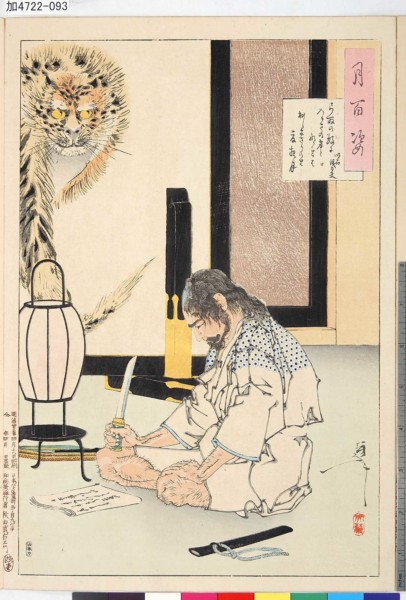By lyuesword | 10 October 2020 | 1 Comments
Samurai Death Poems 辞世詩 Will Take Your Breath Away
 Samurai Death Poems
Samurai Death Poems
In ancient Japan, the arts were highly valued. Writing, poetry, music, and theater were the ideal way for Japanese people to marvel at their surroundings. To look for meaning in things, and find their own place in the world.
From a samurai, for example, great artistic sensitivity was expected. Thus, despite training all his life to fight, one of these warriors was immersed in all kinds of arts from an early age.
And when the time came for the end, what better way to honor a life than with a poem?
In this post we present some famous death poems made by Japanese people; from samurai to imperial nationalists; from noblemen to monks.
A death poem is one written by a person in the last moments of his life. It is understood that this poem is the culmination of a life of events and emotions. And that, as such, it is the essence of the person.
This is what makes them so valuable.
What is it that a person thinks about before they die?
What do they consider most important in their final moments?
These poems are not only a form of appreciation of Japanese culture, but a way to appreciate life and gain new perspectives on the world.
Minamoto No Yorimasa (1106-1180)
Minamoto was a samurai who fought in the Genpei Wars and who defended a temple, helped by monks, from the Taira troops.
However, the defense ended up failing and when Minamoto was captured, he was forced to commit seppuku with his own wakizashi. That was possibly the first seppuku in history to incorporate a poem before death.
His death poem says:
Like a stone tree
from which we gather no flowers,
sad has been my life
fated no fruit to produce.
from which we gather no flowers,
sad has been my life
fated no fruit to produce.
Minamoto’s biggest regret in his final moments was never having had a child.
I‘m so sorry, the original text is not "stone tree", but it can't be quoted for some reason. I'll find a chance to revise it. Please understand.
Ouchi Yoshitaka (1507-1551)
Ouchi was a samurai general who ruled the island of Kyushu for years. He was a cunning man who established strong business relations with China and Korea. In addition, he provided refuge for warriors and nobles from other regions.
In 1551 one of his generals rebelled against him, capturing him and forcing him to commit seppuku.
This was his death poem:
Both the victor
and the vanquished are
but drops of dew,
but bolts of lightning
Thus should we view the world.
and the vanquished are
but drops of dew,
but bolts of lightning
Thus should we view the world.
Ouchi was a thoughtful person, with his philosophical foundations in Buddhism. His death poem talks about an essential teaching of Buddhism: the only truth is the void.
Recently Reviews
Read MoreLeave a Reply
Your email address will not be published.Required fields are marked. *
